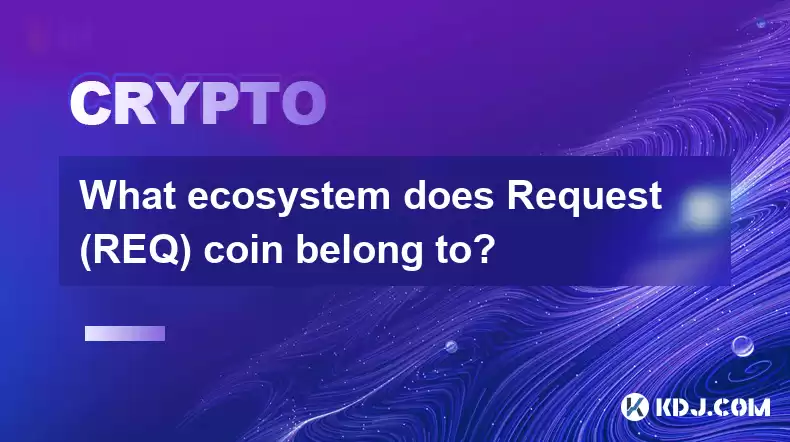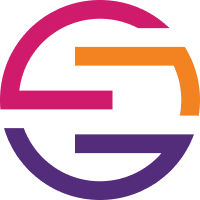-
 Bitcoin
Bitcoin $119000
-2.21% -
 Ethereum
Ethereum $4315
1.01% -
 XRP
XRP $3.151
-3.11% -
 Tether USDt
Tether USDt $0.0000
0.00% -
 BNB
BNB $808.5
-0.71% -
 Solana
Solana $175.8
-4.21% -
 USDC
USDC $0.9999
0.00% -
 Dogecoin
Dogecoin $0.2250
-3.92% -
 TRON
TRON $0.3469
1.77% -
 Cardano
Cardano $0.7818
-3.81% -
 Chainlink
Chainlink $21.47
-2.10% -
 Hyperliquid
Hyperliquid $43.30
-6.81% -
 Stellar
Stellar $0.4370
-2.84% -
 Sui
Sui $3.682
-4.40% -
 Bitcoin Cash
Bitcoin Cash $590.8
2.67% -
 Hedera
Hedera $0.2484
-5.20% -
 Ethena USDe
Ethena USDe $1.001
0.00% -
 Avalanche
Avalanche $23.10
-4.29% -
 Litecoin
Litecoin $119.2
-3.96% -
 Toncoin
Toncoin $3.409
0.90% -
 UNUS SED LEO
UNUS SED LEO $9.016
-1.29% -
 Shiba Inu
Shiba Inu $0.00001304
-3.82% -
 Uniswap
Uniswap $11.18
1.33% -
 Polkadot
Polkadot $3.913
-3.51% -
 Cronos
Cronos $0.1672
-3.08% -
 Dai
Dai $1.000
0.02% -
 Ethena
Ethena $0.7899
-4.70% -
 Bitget Token
Bitget Token $4.400
-1.23% -
 Pepe
Pepe $0.00001132
-5.93% -
 Monero
Monero $257.9
-6.44%
What ecosystem does Request (REQ) coin belong to?
Request Network's REQ token powers its ecosystem, enabling automated payments, reputation systems, and community governance.
Dec 25, 2024 at 05:04 pm

Request Network (REQ): Ecosystem Overview and Applications
Key Points:
- Request (REQ) operates within the infrastructure automation ecosystem, facilitating decentralized payment requests and invoices.
- The Request Network consists of several core components, including the Request Protocol, Request Invoicing, and Request Wallet.
- REQ plays a crucial role as the native utility token for Request Network's services, powering transactions, incentivizing participants, and ensuring the platform's functionality.
Request Network Components:
1. Request Protocol:
- Forms the backbone of Request Network, providing a decentralized platform for issuing and managing payment requests and invoices.
- Leverages blockchain technology to automate the payment process, removing intermediaries and reducing transaction costs.
- Facilitates the secure and timely exchange of payment requests and invoices between senders and receivers.
2. Request Invoicing:
- A user-friendly web-based platform for creating and sending professional invoices.
- Simplifies the invoicing process, allowing businesses to easily generate invoices, track payments, and manage customer relationships.
- Integrates with the Request Protocol, enabling seamless payment requests and automated follow-ups.
3. Request Wallet:
- A cryptocurrency wallet designed specifically for managing REQ tokens and interacting with Request Network dApps.
- Provides secure token storage, as well as support for sending and receiving REQ and other ERC-20 tokens.
- Acts as a gateway for users to engage with Request Network's services.
REQ Token Utility:
- Transaction Fees: REQ tokens are required to pay transaction fees for using the Request Protocol. Fees incentivize validators to process requests and maintain the network's security.
- Reputation System: REQ holders can participate in a reputation system that rewards reliable participants in the Request Network.
- Staking and Delegation: REQ tokens can be staked or delegated to validators, who earn rewards for processing requests.
- Governance: REQ token holders can participate in governance voting, shaping the future development and direction of Request Network.
Potential Applications:
- Invoicing and Payment Automation: Request Network streamlines the invoicing and payment process for businesses, reducing manual work and overhead costs.
- Improved Cash Flow Management: Automated payment requests and notifications enable businesses to receive payments faster and improve their cash flow.
- Eliminating Fraud and Disputes: The blockchain-based infrastructure ensures the authenticity of requests and invoices, reducing the risk of fraud and disputes.
- Customizable Payment Workflows: Request Network allows businesses to customize payment workflows to meet their specific requirements.
- Integration with Other Systems: Request Network integrates with various accounting and CRM systems, providing a comprehensive financial management solution.
FAQs:
Q: What is the purpose of Request Network?
A: Request Network automates the payment request and invoicing process, reducing costs, improving efficiency, and enhancing security for businesses.
Q: What industries benefit from using Request Network?
A: Request Network is particularly beneficial for industries that rely on repetitive and high-volume invoicing, such as freelance work, consulting, and e-commerce.
Q: Is Request Network a secure platform?
A: Yes, Request Network employs blockchain technology and robust cryptographic mechanisms to ensure the security and integrity of requests and invoices.
Q: Does Request Network support other cryptocurrencies besides REQ?
A: Currently, Request Network primarily uses REQ tokens for its platform operations. However, it plans to integrate support for additional cryptocurrencies in the future.
Q: How is Request Network different from other payment processing platforms?
A: Request Network stands out by providing decentralized and automated payment request and invoicing solutions, eliminating intermediaries and reducing transaction costs.
Disclaimer:info@kdj.com
The information provided is not trading advice. kdj.com does not assume any responsibility for any investments made based on the information provided in this article. Cryptocurrencies are highly volatile and it is highly recommended that you invest with caution after thorough research!
If you believe that the content used on this website infringes your copyright, please contact us immediately (info@kdj.com) and we will delete it promptly.
- Circle Stock, Blockchain, and Strong Earnings: A Bullish Outlook
- 2025-08-12 22:30:12
- Nexchain, Crypto Presale, and Rankings: What's the Buzz?
- 2025-08-12 22:30:12
- Arc Blockchain: Circle's Layer-1 Play Amidst $428 Million Loss
- 2025-08-12 20:30:13
- XRP Price: Riding the Bull Cycle Wave or Hitting a Wall?
- 2025-08-12 20:50:12
- Cloud Mining in 2025: Chasing Passive Income and High Returns
- 2025-08-12 20:30:13
- XRP Price Forecast: Can XRP Hit $8, $12.60, or Even $100? Surge Drivers Analyzed
- 2025-08-12 21:10:13
Related knowledge

How to purchase Aragon (ANT)?
Aug 09,2025 at 11:56pm
Understanding Aragon (ANT) and Its PurposeAragon (ANT) is a decentralized governance token that powers the Aragon Network, a platform built on the Eth...

Where to trade Band Protocol (BAND)?
Aug 10,2025 at 11:36pm
Understanding the Role of Private Keys in Cryptocurrency WalletsIn the world of cryptocurrency, a private key is one of the most critical components o...

What is the most secure way to buy Ocean Protocol (OCEAN)?
Aug 10,2025 at 01:01pm
Understanding Ocean Protocol (OCEAN) and Its EcosystemOcean Protocol (OCEAN) is a decentralized data exchange platform built on blockchain technology,...

How to invest in Kyber Network Crystal v2 (KNC)?
Aug 12,2025 at 05:21pm
Understanding Kyber Network Crystal v2 (KNC)Kyber Network is a decentralized liquidity hub built on the Ethereum blockchain that enables instant token...

Where can I buy UMA (UMA)?
Aug 07,2025 at 06:42pm
Understanding UMA and Its Role in Decentralized FinanceUMA (Universal Market Access) is an Ethereum-based decentralized finance (DeFi) protocol design...

What exchanges offer Gnosis (GNO)?
Aug 12,2025 at 12:42pm
Overview of Gnosis (GNO) and Its Role in the Crypto EcosystemGnosis (GNO) is a decentralized prediction market platform built on the Ethereum blockcha...

How to purchase Aragon (ANT)?
Aug 09,2025 at 11:56pm
Understanding Aragon (ANT) and Its PurposeAragon (ANT) is a decentralized governance token that powers the Aragon Network, a platform built on the Eth...

Where to trade Band Protocol (BAND)?
Aug 10,2025 at 11:36pm
Understanding the Role of Private Keys in Cryptocurrency WalletsIn the world of cryptocurrency, a private key is one of the most critical components o...

What is the most secure way to buy Ocean Protocol (OCEAN)?
Aug 10,2025 at 01:01pm
Understanding Ocean Protocol (OCEAN) and Its EcosystemOcean Protocol (OCEAN) is a decentralized data exchange platform built on blockchain technology,...

How to invest in Kyber Network Crystal v2 (KNC)?
Aug 12,2025 at 05:21pm
Understanding Kyber Network Crystal v2 (KNC)Kyber Network is a decentralized liquidity hub built on the Ethereum blockchain that enables instant token...

Where can I buy UMA (UMA)?
Aug 07,2025 at 06:42pm
Understanding UMA and Its Role in Decentralized FinanceUMA (Universal Market Access) is an Ethereum-based decentralized finance (DeFi) protocol design...

What exchanges offer Gnosis (GNO)?
Aug 12,2025 at 12:42pm
Overview of Gnosis (GNO) and Its Role in the Crypto EcosystemGnosis (GNO) is a decentralized prediction market platform built on the Ethereum blockcha...
See all articles

























































































